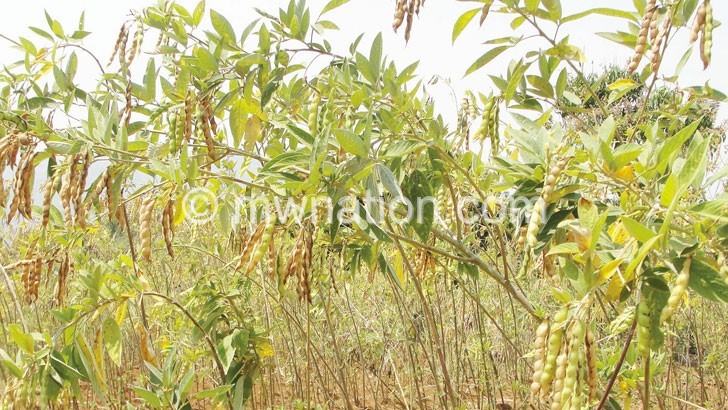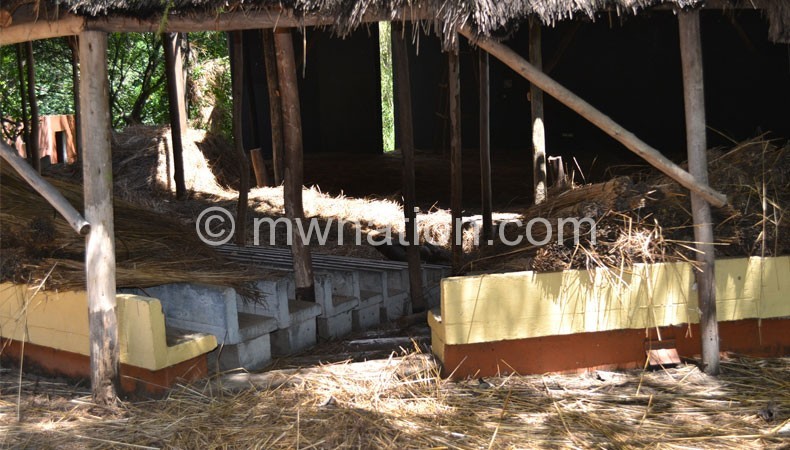Local pigeon peas farmers now have unlimited access to the Indian market following the waiver of a 50 000 metric tonnes (MT) export quota imposed on Malawi by the Indian Government in 2017.
In a communication dated January 31 2023 addressed to the Ministry of Foreign Affairs and copied to Ministry of Trade and Industry, the High Commission of India said the quota for pigeon peas under the memorandum of understanding (MoU) between the two governments has been waived until March 31 2024.
Malawi now has unlimited access for pigeon
peas exports to India
Speaking in an interview yesterday, Ministry of Trade and Industry spokesperson Mayeso Msokera said while the ministry welcomes the move by the Indian Government, stakeholders will need to mobilise themselves to produce more.
He said: “We call upon producers to also utilise the available agricultural production and export financing facilities at institutions such as Export Development Fund, Agriculture Commercialisation Project and other local financial institutions to facilitate their export financing needs.
“The news about the waiving of the quota implies that our cooperation with India is moving towards more trade as Malawi now has an opportunity to export unlimited quantities of pigeon peas and toor dal to India.”
Legumes Development Trust project manager Sangwani Makoko said in a separate interview that there is need to fully exploit the market opportunity and ensure that all relevant stakeholders are informed of the trade window.
“Lack of information for farmers could be a setback. It is one thing to have unlimited quota and another to have it realised,” she said, adding that this opportunity can be fully exploited if farmers produce enough to meet the market demand.
In June 2021, Ministry of Trade and Industry and the Indian Government signed an MoU for
the export of 250 000MT over five years from the 2021/22 fiscal year.
This followed the introduction of a trade policy on import of toor dal in August 2017 which imposed an import cap of 200 000MT on pigeon peas imports.
The development threw into disarray government’s wider diversification plan, which involves the intensification of legumes growing to supplement foreign exchange from tobacco, which is the country’s number one forex earner, but whose earnings have been dropping over the past five years.
Nandolo Farmers Association of Malawi chairperson Susan Chimbayo was yet to respond to our questions, but in an earlier interview she said it has not been easy for pigeon peas farmers due to lack of markets.
She said they have capacity to surpass Indian market demand, adding that a majority of farmers already adopted new high-yielding varieties.
Agriculture development policy expert Tamani Nkhono Mvula said in an interview yesterday that while there is now an open-ended market for pigeon peas, most Malawian farmers miss out due to lack of information.
He said: “At the end of the day, it is not Malawian farmers that will benefit, but the traders who already have contracts in India that will benefit.
“They will buy from farmers at low prices and export to India.” Since India introduced the trade policy on import of pigeon peas in 2017, Malawi lost 64 percent in export earnings and Indian High Commission data shows that Malawi exports to the Asian country fell from $39.32 million (about K41 billion) in 2016/17 to $9.05 million (about K9 billion) in 2017/18, followed by a resurgence in imports of pigeon peas to $14.32 million (about K15 billion) in the 2018/19 financial year.
The post India opens up market for pigeon peas first appeared on The Nation Online.
The post India opens up market for pigeon peas appeared first on The Nation Online.
 Moni Malawi
Moni Malawi 

